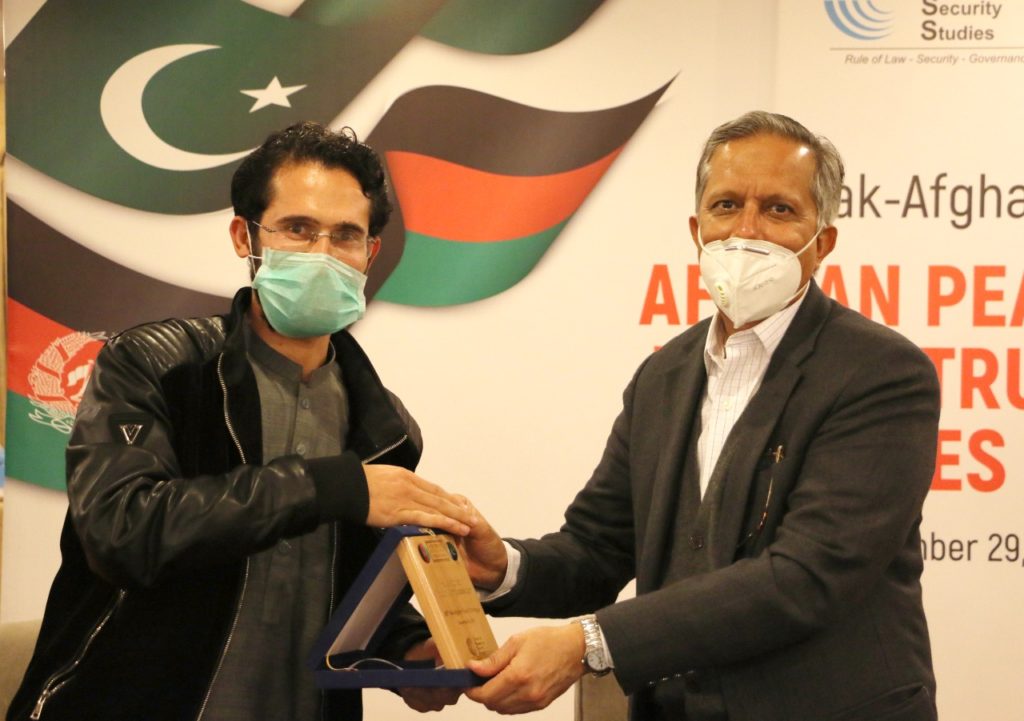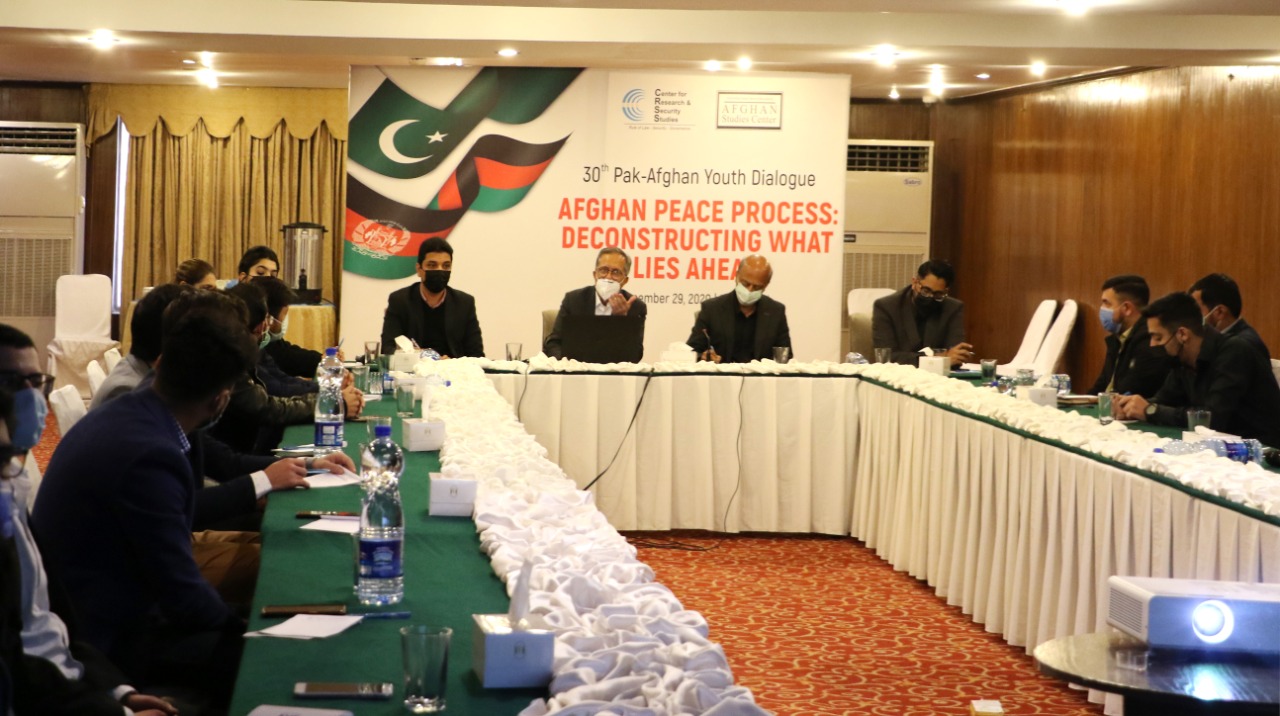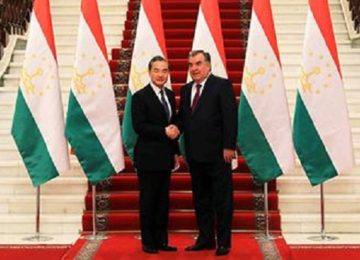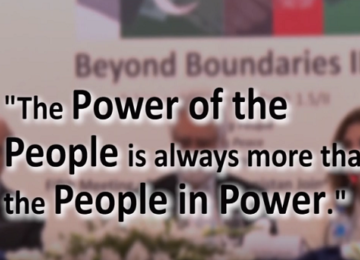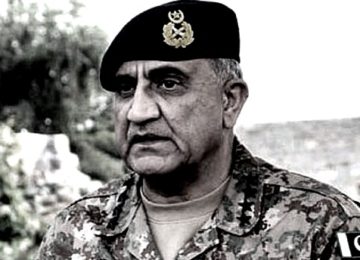January 1, 2021
Dr. Tughral Yamin, Dean Center for International Peace and Stability (CIPS), National University of Science and Technology (NUST), while speaking at the 30th Pak-Afghan Youth Dialogue at the Center of Research and Security Studies (CRSS) on “Afghan Peace Process: Deconstructing What Lies Ahead” held on Tuesday, December 29, 2020 stated that prosperity in Islamabad comes hand in hand with peace in Kabul. Since both countries share a common border, along with the same religion, language, culture, history, values, identity, and aspirations, peace is integral for both sides to prosper. Afghanistan and Pakistan are brother countries and have no issues between them,, except for misunderstandings.
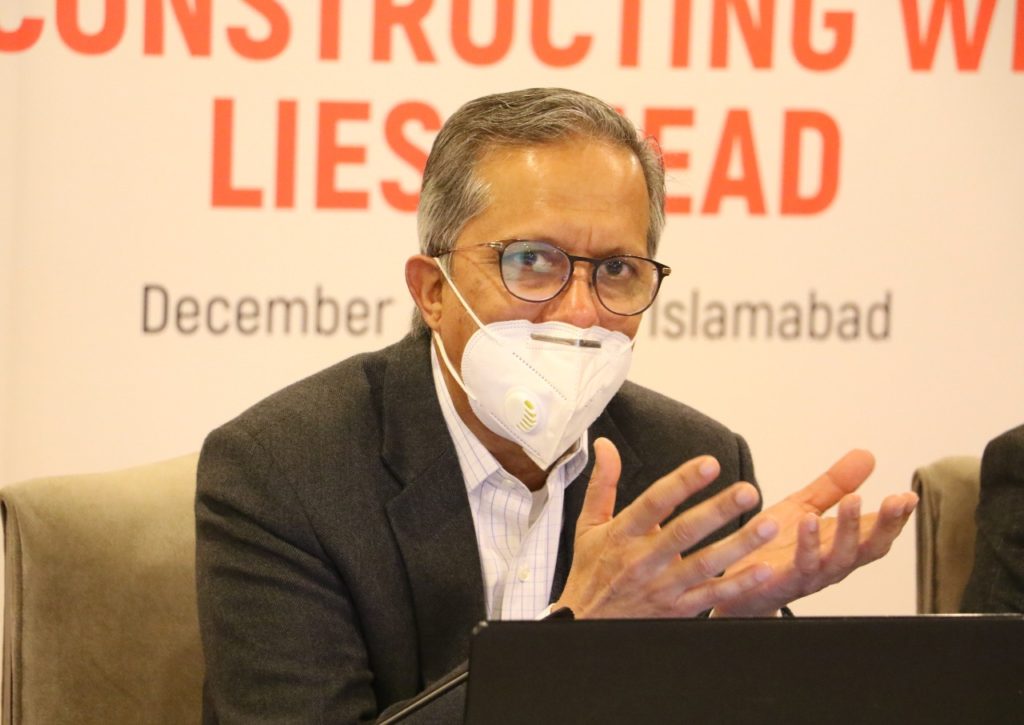
Pakistan has played a very critical role in the Afghan peace process. While explaining Pakistan’s role in the intra-Afghan peace talks, the Government of Pakistan is treating all the parties indiscriminately, and desires a peace where all the factions are partners, and are on the same page, he added He went on to say that the intra-Afghan peace talks are most likely to be successful, because all the parties involved i.e. the Afghan stakeholders, Pakistan, US, China and majority of the external players long for peaceful conclusion to the conflict and desire stability in the region. He acknowledged the existence of spoilers to impede the steady peace process, but he believed that Afghans are best at negotiating and they will never fall prey to spoilers.
Dr. Tughral Yamin invited as the Chief Guest and Keynote Speaker at the event, also commended CRSS’ role regarding Track 1.5/II efforts for the mitigation of the issues of mutual concern with Afghanistan.
Stating the significance of a post-peace l Afghanistan, he talked about the importance of a post-conflict rehabilitation program across the country. He was of the view that a DDR (De-mobilization, De-weaponization and Re-integration) program is essential for reintegrating the Taliban fighters into normal population through their skill trainings, and brain washing, is critical for bringing peace in Afghanistan.
A peaceful Afghanistan will also help in improving trade ties between the two countries, along with the initiation of joint ventures in the realms of science, technology and education. Additionally, peace in Afghanistan will facilitate in the the return of Afghan refugees, as well.
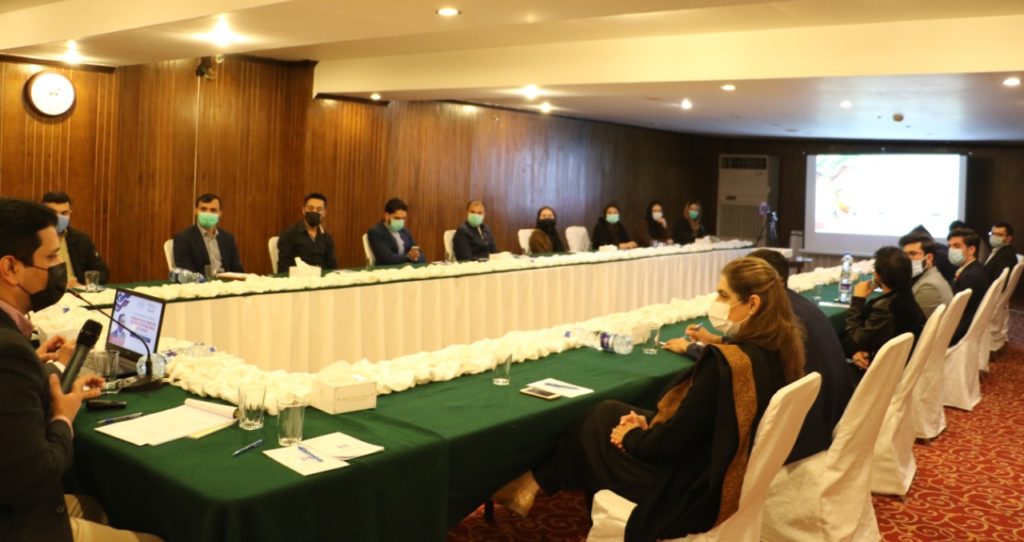
Dr. Yamin also proposed that the youth in both the countries has a very critical role to play in bringing peace, through the use of education, social media, academic research and writing. Though, open-heartedness is required from both sides, he remarked. Earlier, Mr. Imtiaz Gul, Executive Director CRSS, in an introductory note, enlightened the participants about the negative role being played by some external players. He gave the example of the Indian Chronicles in this regard, which fairly explains how subtly spoilers work in creating grey areas to their advantage.. He also explained that the world today is divided into two groups i.e., anti-Taliban group and the pro-Taliban group, which he felt is not good for peace process. Let’s give peace a chance, he opined.. Mr. Gul also seconded the stance of Dr. Yamin that giving Pakistani nationality to the Afghan refugee born in Pakistan and living here for decades, can help in augmenting feelings of partnership between the two countries.
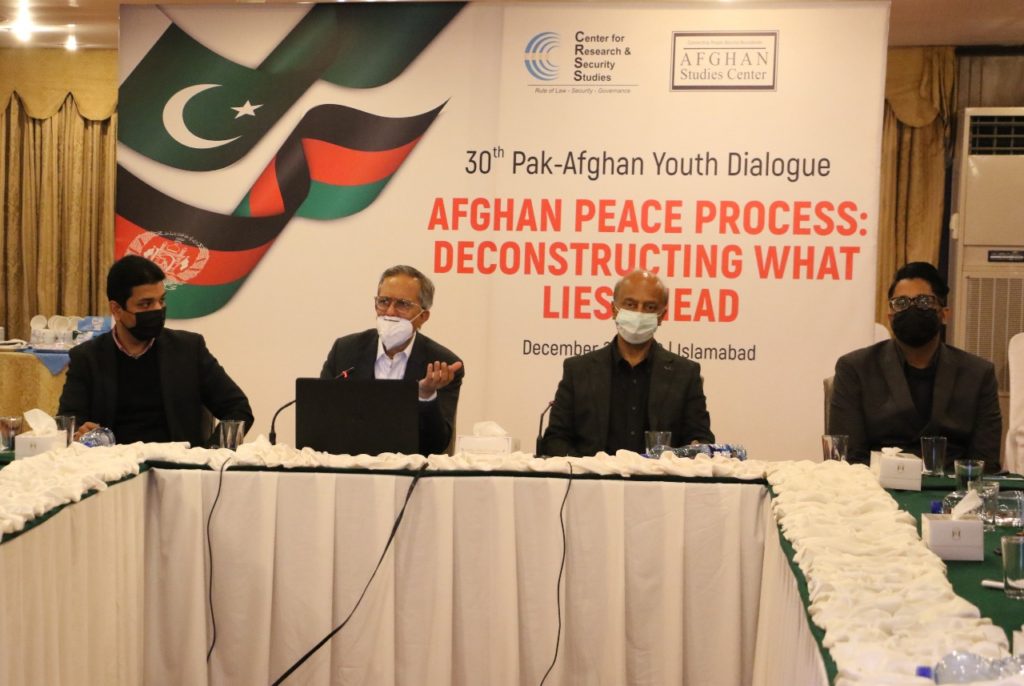
In the interactive discussion among the participants, the stance of new US administration, the expected model of government in Afghanistan, visits of Afghan and Taliban stakeholders to Pakistan and other states, and opportunities for regional countries to mutually take over US’ role in the rehabilitation of Afghanistan were discussed between the youth of both Pakistan and Afghanistan. Most of the participants were of the view that Joe Biden will not opt for terminating the peace process. He has a vast experience of being in the government and knows the complexity of the peace process. Therefore, he might expedite the peace process but he will never terminate the process.
While discussing the potential models of government in Afghanistan, the participants agreed that importing Nelson Mandela’s model of ‘Rainbow Government’ can be very helpful for Afghanistan’s prosperity. The participants further discussed that the visits of Afghan stakeholders are solely part of facilitating the peace process only. However, since US is about to leave Afghanistan, India and Pakistan have a golden opportunity to join hands in contributing positively to the development of Afghanistan. If -Pakistan-Afghanistan-India triad joins hands, they can easily harness the peace and prosperity the region in longing for. The ball is India’s court, it has to decide, whether it is with peace or against it.
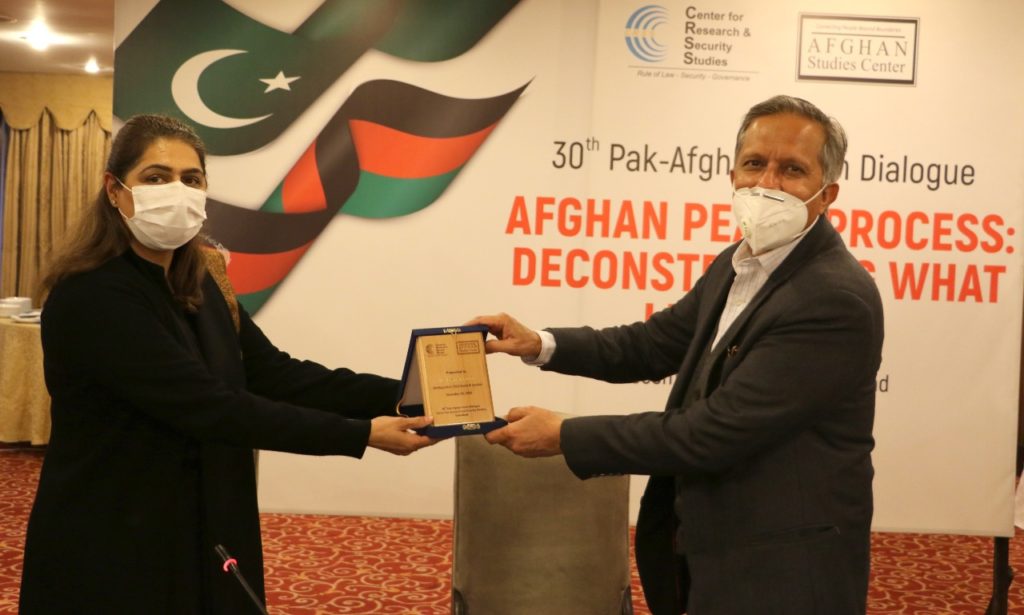
The bottom line of the discussion was that peace process is a very complex and it takes a lot of time for the completion and success. The involved stakeholders and parties need to understand that ups and downs are an integral part of the peace process. All sides should be ready to overcome any hurdle for the greater cause i.e., peace. Moreover, matters are expected to smoothen with the passage of time, if different sides act maturely and dedicatedly.
The session was part of the ongoing series of Pak-Afghan Youth Dialogue initiated by CRSS’ Afghan Studies Center which is aimed at promoting academic, cultural and sports exchanges between the youth of Pakistan and Afghanistan, and creating young leaders who can become advocates of peace in the region.
